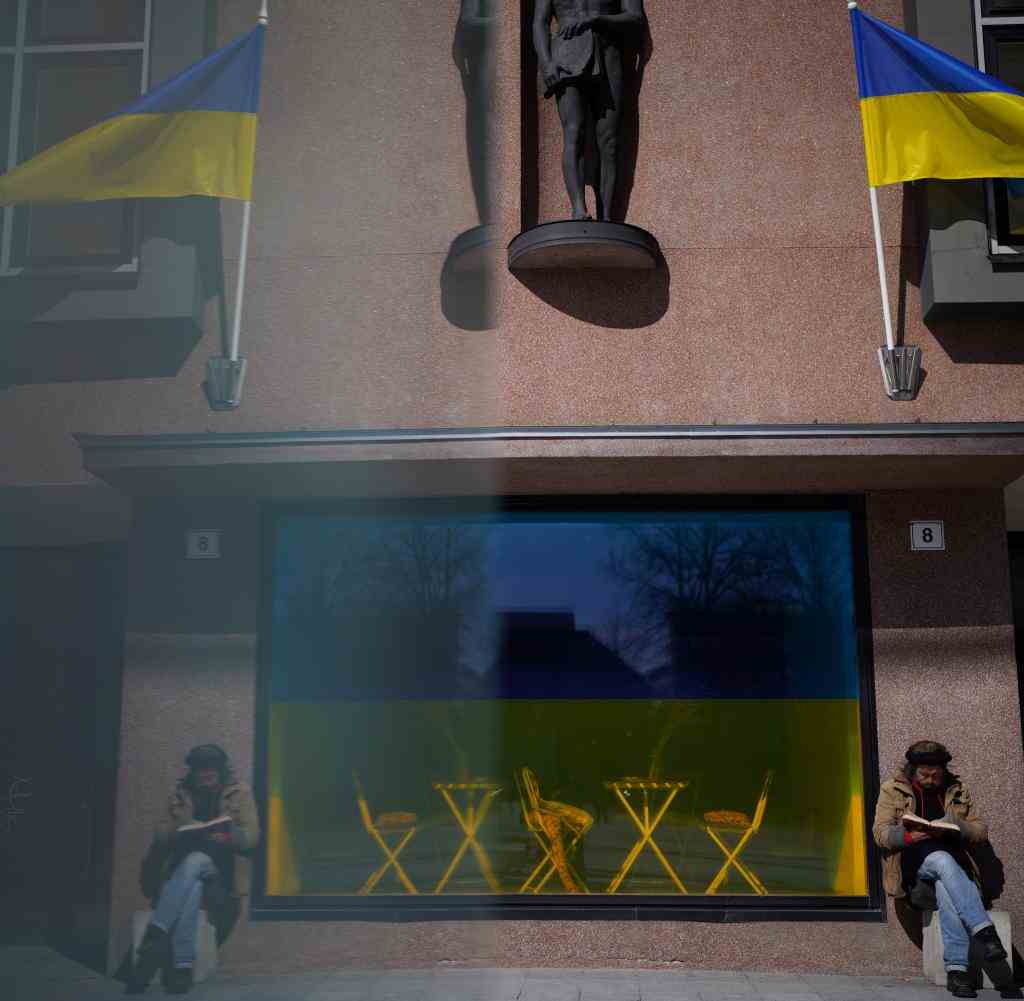Lithuania wants to apply new EU guidelines on transit to Kaliningrad
“Putin wants to make money from his gas, he wants smooth transit”
Russia is sending signals to extend gas supplies to Europe through Ukraine beyond 2024. “Let’s work on a win-win situation, if you want,” Moscow correspondent Christoph Wanner reads between the lines – and provides good arguments for it. Will this ease the gas crisis?
The EU has made it clear that Russia can transport civilian goods to its Kaliningrad exclave, even if they are subject to sanctions. But there are restrictions. Lithuania promises to apply the guidelines – but also expresses criticism.
LItaly welcomed the EU Commission’s clarification of the guidelines for transit traffic between Russia and its Baltic Sea exclave of Kaliningrad, but was also critical of it. In a statement on Wednesday, the Ministry of Foreign Affairs in Vilnius gave a positive assessment of the fact that the clarification does not create any special exceptions or different treatment of the sovereign territories of the EU member states. However, Lithuania understands that the new regulation could possibly give the wrong impression that the transatlantic community is softening its position and sanctions policy towards Russia.
After protests and threats from Moscow, the EU Commission had previously drawn up new guidelines that affect transit traffic between Russia and its Baltic Sea exclave of Kaliningrad. This became necessary because the transit runs through Lithuania and therefore through EU territory. According to this, Russia is allowed to bring civilian goods such as wood and cement that are on the EU sanctions list by rail through the EU country Lithuania without major restrictions.
However, road transport of these goods by Russian freight forwarders through EU territory is still prohibited. In addition, no goods that can also be used for military purposes may be transported by rail. “Lithuania will effectively ensure the application of sanctions by closely monitoring, principledly and effectively checking whether Russia attempts to abuse its transit capabilities,” the foreign ministry said in a statement.
Russia had threatened Lithuania with countermeasures
Should something like this be discovered, Lithuania reserves the right to unilaterally prevent such attempts. The same applies to national security interests. It was initially unclear when Lithuania would again allow goods subject to sanctions to pass from and to Kaliningrad. “We are waiting for clarification from the responsible institutions for the time being,” said a spokeswoman for the Lithuanian railways on the radio.
The government in Moscow recently accused Lithuania of illegally restricting the movement of goods between Russia and Kaliningrad and threatened “practical” countermeasures against the Baltic EU and NATO country. Specifically, Russia brought up the repeal of the Russian-Lithuanian state border treaty, among other things. The exclusion of Lithuania from a joint, synchronously switched power grid was also discussed. The Kaliningrad exclave around the former Königsberg lies between the EU states of Lithuania and Poland. It is only about 500 kilometers from Berlin, but more than 1000 kilometers from Moscow.
Germany in particular had also pushed for the new guidelines. According to information from EU circles, the federal government feared that the transit dispute could provoke a dangerous escalation of tensions with Russia. In addition, according to information from Berlin, there were specific agreements in advance on the interpretation of the sanctions, which were not compatible with the procedure in Lithuania.
Lithuania can further delay the movement of goods with controls
With the new guideline, the EU Commission is now making it clear that it is placing Russia’s transit law in rail traffic above the legal view that Russia could be prohibited from transporting goods via Lithuania against the background of the sanctions regulations. The regulations prohibit the import of certain Russian goods into the EU. In addition to wood and cement, the import of iron and steel products, fertilizers and caviar is also prohibited.
With regard to the transport of civilian goods by rail, the EU Commission stipulates in its guidelines that these may only be transported in the previously customary quantities. There should also continue to be targeted and effective controls. If it is noticed that larger quantities of goods than usual are being transported, these must be stopped according to the guidelines. The average transit volumes over the past three years should be used as a basis for comparison.
The regulation is intended to prevent Russia from transporting goods that are on sanctions lists to other countries via Kaliningrad and thus avoiding sanctions. The new guidelines had actually already been ready at the beginning of July. However, according to information from EU circles, Lithuania delayed the process and urged them to be formulated in such a way that Russia could not celebrate them as a success of its threatening policy.


